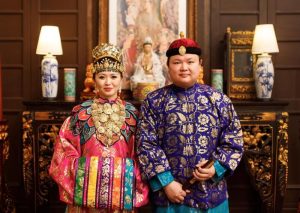
Knowing the days of the week in Chinese is a vital step in your Mandarin studying journey. It’s important to know when you need to be somewhere, or when an event is occurring. It’s also a fun introduction into come easy-to-comprehend Chinese and it’s another instance of where Chinese just ‘makes sense’ – well, for the most part!
In this blog we’ll explore the days of the week in Chinese and their make-up, as well as some of the logic behind their formation. There are three ways to say the days of the week in Chinese and they are all based on a numerical sequence. You’ll use set methods in specific circumstances, so we’ll explain them as we go along.
So, how do you say the days of the week in Mandarin?
Standard Formation
The standard formation of days of the week in Chinese is 星期 (xīngqí) + the day number. 星期 means ‘star period’ and this is the most common way of expressing days of the week in Mandarin, as well as the method that is first taught. This method is more common in northern China.
Monday: 星期一 – xīngqīyī
Tuesday: 星期二 – xīngqī’èr
Wednesday: 星期三 – xīngqīsān
Thursday: 星期四 – xīngqīsì
Friday: 星期五 – xīngqīwǔ
Saturday: 星期六 – xīngqīliù
Sunday is the only outlier and is said as either of the following:
星期天 – xīng qī tiān
星期日 – xīng qī rì
Formal and Historic Formation
The (recent) historic formation of the days of the week in Mandarin is 禮拜 lǐbài + the day number. 禮拜 means ‘worship’ (think Sunday – day of worship). This system was first adopted in China with western influence, as prior to this system 10-day cycles known as 旬 – xún were used. You won’t always encounter this method of day formation in your textbooks, but its use is still surprisingly common in everyday life in China! This method is more common in southern China.
Monday: 礼拜一 – lǐbàiyī
Tuesday: 礼拜二 – lǐbài’èr
Wednesday: 礼拜三 – lǐbàisān
Thursday: 礼拜四 – lǐbàisì
Friday: 礼拜五 – lǐbàiwǔ
Saturday: 礼拜六 – lǐbàiliù
Sunday: 礼拜日 / 礼拜天 – lǐbàirì or lǐbàitiān
Modern Formation
In more recent years an (even) easier method has developed for saying and writing days of the week in Chinese. The introduction of the 周 – zhōu + the day number, which means ‘cycle’, has allowed for a two-character compound method of naming the days of the week in Chinese. It is very common to see this in written form, although it’s also commonly used in spoken Chinese – particularly in northern China.
Monday: 周一 – zhōuyī
Tuesday: 周二 – zhōu’èr
Wednesday: 周三 – zhōusān
Thursday: 周四 – zhōusì
Friday: 周五 – zhōuwǔ
Saturday: 周六 – zhōuliù
Sunday: 周日 – zhōurì (note: 周天 doesn’t work in this instance).
Days of the Week in Traditional Chinese
For traditional, the methods are the same but the characters are as follows:
Standard: 星期 (no change)
Formal: 禮拜
Modern: 週
We hope you enjoyed learning how to say the days of the week in Chinese and the different uses. With the upcoming holiday season, why not learn these Christmas greetings in Chinese?























